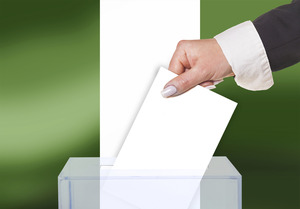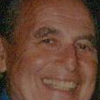 It's getting to be an old story for Nigeria's 174 million souls. President Goodluck Jonathan has postponed the scheduled Feb. 14 national elections to March 28.
It's getting to be an old story for Nigeria's 174 million souls. President Goodluck Jonathan has postponed the scheduled Feb. 14 national elections to March 28. He says the reason for the delay is that voters have not all been supplied with Permanent Voter Cards (PVCs), about 2,000 ballot boxes are reportedly inadequate, many election staffers remain untrained and he fears violence from the terrorists Boko Haram will disrupt the election at this time.
Jonathan made the postponement through his controlled Independent National Electoral Commission (INEC). Wearing his recognizable black fedora, Jonathan maintains he is not at all embarrassed by the delay.
But opposition candidates--and there are 14 of them--scoff at Jonathan's excuse. Jonathan is seeking his second and final four-year term as head of the world's poorest country. Nigeria is growing poorer by the day because of the sharp drop in world oil prices. Jonathan is reported to have become a multi-millionaire during his time in office.
Jonathan opponents argue he wants more time to shore up his campaign team for a close fight with his main opponent, Muhammadu Buhari of the All Progressives Congress. Buhari vows to halt widespread corruption and give citizens a greater voice in how the government is run. Buhari is 72. Jonathan is 57.
Curiously, Buhari is a retired Major General in the Nigerian Army. He ruled Nigeria from late 1983 to August 1985, after taking power in a military coup d'état. Corruption was as widespread then as it is now, according to national observers who follow Nigeria's politics.
Buhari's youth followers in the All Progressives Congress Party plan a one-million-person march later this month in Nigeria's capital Abuja to protest the postponement of the general election.
Both the United States and Great Britain are not happy with the election postponement. The U.S. and the U.K. are key allies in Nigeria's fight against the terrorists Boko Haram. The election delay will only give the terrorists more time to prepare strikes against the African country, Jonathan critics argue.
The delay also threatens to further erode Nigeria's faltering economy. About 80 percent of the country's revenue comes from oil. Crude prices worldwide have fallen by more than half in the past six months, from about $100 per barrel to an average $50 per barrel today.
Nigeria's currency, the naira, has lost 10 percent of its value in the past three months. The central bank's reserves are down 20 percent compared with this time last year. Some civil servants say they haven't been paid for months.
Lenders and foreign investors are on the sidelines, fearful of injecting new capital at this time. Besides oil, Nigeria manufactures little beyond bottled water, fruit juice, spaghetti and cement.
The Nigerian general election will be the fifth quadrennial election to be held since the end of military rule in 1999. Besides the president, voters will elect members to the House of Representatives and the Senate.
Jonathan ran unopposed in the People's Democratic Party (PDP) primaries on Dec. 10, 2014, receiving the nomination of the party. However, Jonathan critics point out, the president won that nomination only by disregarding an unwritten rule that the PDP's presidential candidacy should alternate between Muslim northerners and Christian southerners.
As a result, numerous members of parliament from the PDP shifted their support to the All Progressive Congress party. That party was formed as an alliance of four opposition parties, the Action Congress of Nigeria, the Congress for Progressive Change, the All Nigeria Peoples Party, and the All Progressives Grand Alliance.
World banking and oil industry analysts say the slump in global oil prices is expected to hit Africa's economies far more than the Ebola epidemic. The slump will likely have more far reaching implications for countries facing elections, like Nigeria.
Nigeria was the first casualty of the U.S. shale boom, but analysts note that oil flows to the U.S. displaced by shale has also altered oil trade in Angola, Libya and Algeria, which produce light sweet crude oil, similar to the type produced in new fields in North Dakota.
Taking all that into account, will Goodluck Jonathan still be able to win a second term? With a first name like Goodluck, it's tough to bet against him. And that's the way it is at this moment.

 By
By 